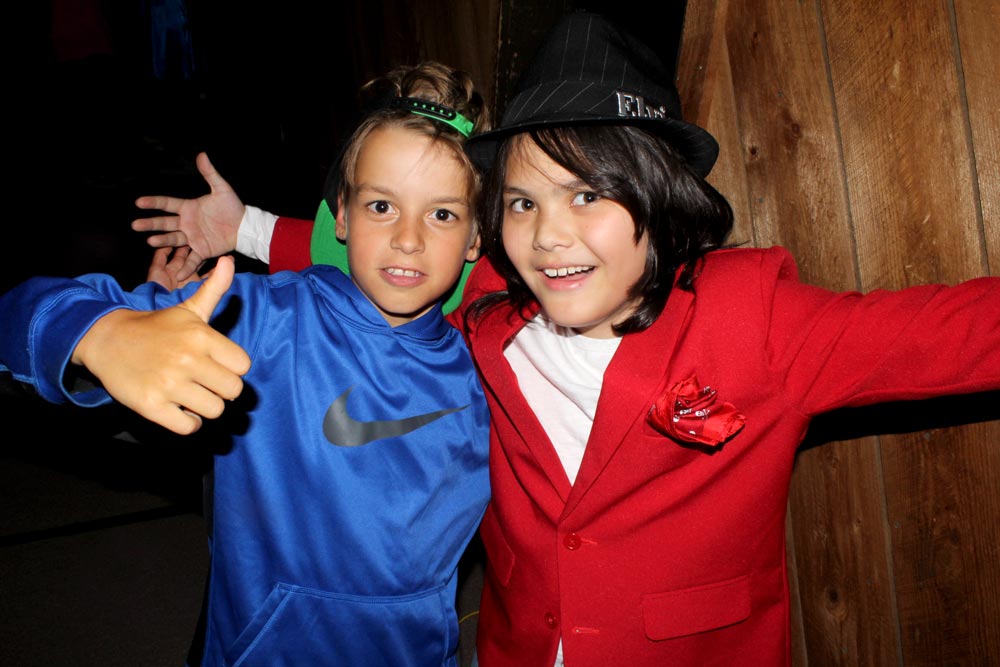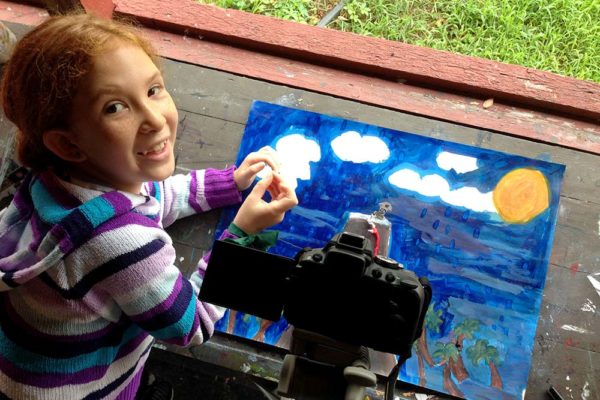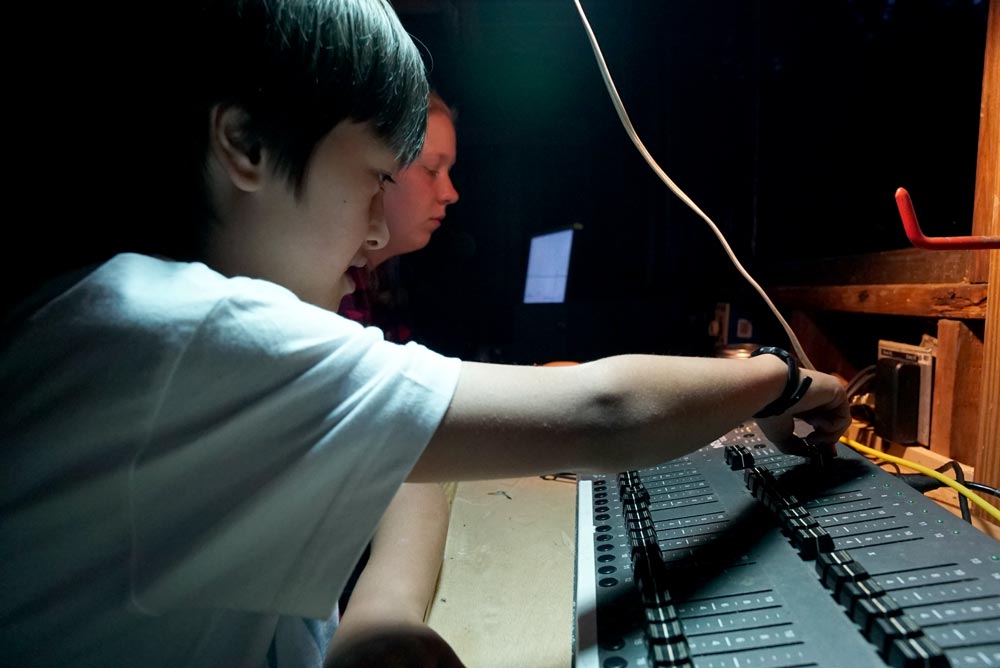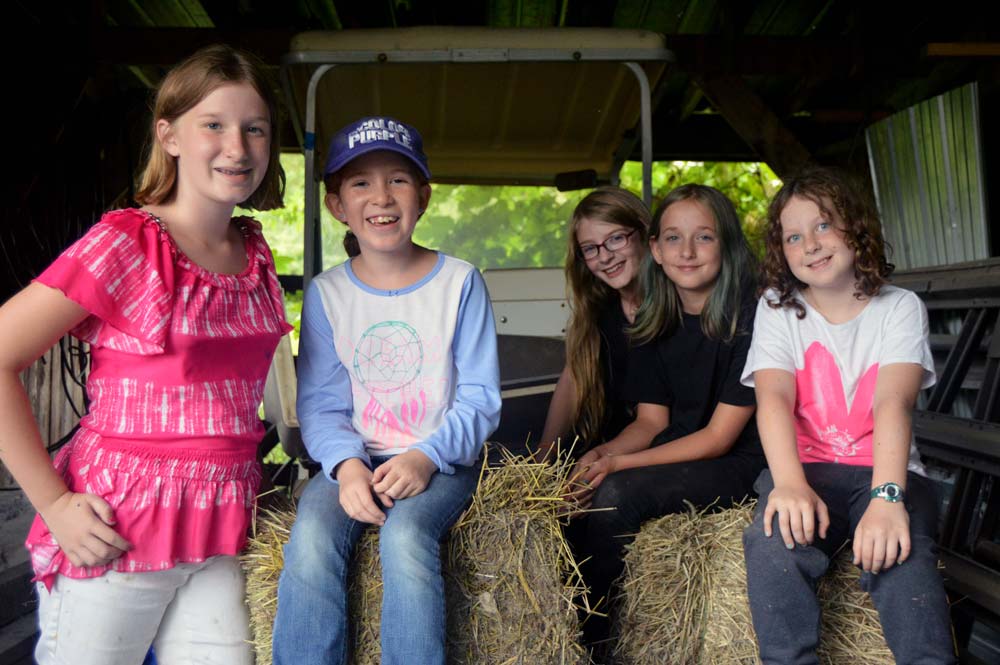By the time my 10-year-old son left for his first time at overnight camp, where he would be staying for two weeks, I had not yet been apart for him for more than three consecutive nights. For me, the days leading up to his departure were... fraught, to say the least. I worried constantly whether or not I was doing the right thing. Was he going to be able to handle the nights alone? Would he be terribly homesick without his family and friends? Was he, you know, ready?
These questions seem to me now, in retrospect, overly anxious and more the sign of a mother who wasn’t ready—not a son. Because: My son was totally able to handle the nights alone. He had nothing resembling homesickness. And he proved more than ready and, in fact, fully capable of handling the two week experience; wholeheartedly embracing the independence and opportunity to explore new challenges and creative pursuits at a summer camp for kids. (Oh, and the food. He really loved embracing and exploring the food.) But at the time, my many questions didn’t feel like those of an anxiety-addled parent. Rather, they stemmed from a place of genuine concern that I was manifesting that ultimate fear of all parents everywhere: doing the wrong thing for my child.
I was manifesting that ultimate fear of all parents everywhere: doing the wrong thing for my child.
Hmm, okay, maybe this isn’t every parent’s fear, but I bet it’s not an uncommon one, namely, that there’s a small-scale butterfly effect for every action you take as a parent, and thus you could potentially mess up your children’s entire lives by making the wrong choice for them. (Yes, I know how insane I sound, and, yes, I also understand that perhaps I could benefit from the same type of process- rather than goals-oriented experience that Ballibay offers, but that’s not the point right now.)
There is a point though! And that point is that while the fears of whether or not your child can handle camp might very well come from a real place, it’s also really important to ask yourself those questions anyway, and, most of all, to answer them honestly. And that’s just what I did—it’s also what all nervous parents should force themselves to do.
For example: Are you worried about if your child can handle being away at night? Ask yourself how they’ve done on sleepovers in the past. Are they confident in the homes of their friends? Or do they always ask to be picked up early? This is not a question about whether or not your child gets a little nervous before the first day of school or before their first ever sleepover party, because those kinds of nerves are normal, and can be expected before overnight camp too.
Rather, focus on how your child actually felt throughout their experience, and whether or not they left that sleepover or the first day of school feeling confident and ready to go for another. Chances are that if your child is at a overnight camp appropriate age (and most kids start between the ages of 7 and 10), they’re ready for the camp itself.
You can also help ease any lingering anxieties (theirs and yours) by talking to them about what to expect at the camp. Pore over the website and the Facebook page, point out all the fun activities in which they’ll soon be engaged. This is not only a way to get kids excited, but also to give them appropriate expectations.
Perhaps your child will feel more at ease if they’re attending camp with a sibling or friend? This helped my younger son when he started Ballibay. It was important to him that his older brother was there, but it made it even easier to know that he had a friend waiting for him. If you think this will help your child ease into the experience, talk to their friends’ parents and see if you can arrange something. An important aspect of camp is allowing your kids to make friends outside of their regular social circle, but it’s definitely possible that it will make camp more fun for them if they know at least one person there.
One important thing to remember is not to give your child an easy out.
One important thing to remember is not to give your child an easy out. Don’t make them think overnight camp is something they can try for a day and then give up on. Make sure they understand the commitment required and talk them through it, and then while you can and should talk with the camp administrators about any fears you might have, take the advice you’ve given to your kids and focus on the fact that you’ve signed them up to have an incredible adventure and be confident in your decision.
And then just relax. This was, ultimately, what I did after sending my son off with his dad to Ballibay. I reminded myself that, were anything to be wrong, I’d surely be contacted, and just allowed myself to enjoy my own two weeks. And enjoy them I did! It turns out it’s kind of nice to have a couple of weeks sans kids? Who knew? (Everyone knew.)
By the time I drove out to get my son two weeks later, any nerves I felt were ones of excitement. I prepared myself for a tearful reunion, and instead was blown away by the smile of pure joy that spread across his face (it helped that he looked particularly adorable, dressed up in lederhosen as he was playing Kurt in The Sound of Music) and his non-stop talking about what an amazing time he’d had.
Every kid is different, of course, but you can feel confident that if you’ve found the right environment for your prospective camper and made sure to accommodate their needs as best you can, that they will have a good experience. At a certain point you just need to let go—for their sake, and for yours.






